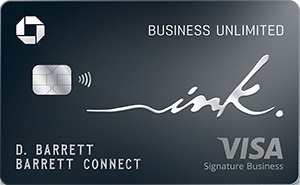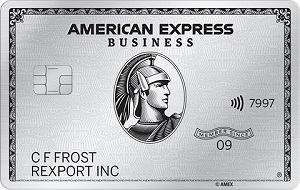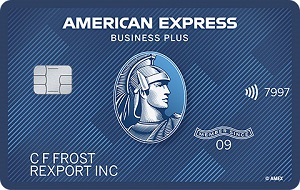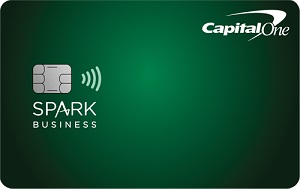 On April 15th, is the deadline for tax payments. However, if you’re a freelancer or self-employed, you’ll have to make estimated tax payments each 3 months, with the last payment due on January 15th.
On April 15th, is the deadline for tax payments. However, if you’re a freelancer or self-employed, you’ll have to make estimated tax payments each 3 months, with the last payment due on January 15th.
Check out our list of the best credit card bonuses.
If you want to mess around with credit card rewards, you should think about charging your taxes so you can earn points, miles, or cash back. However, there’s also a cost for using your credit card as well.
Read below for more information on the pros and cons of paying your taxes with your credit card.
Choose Which Way to Pay Your Taxes
There are a few ways for you to make tax payments to the federal government, this includes checks by mail and via debit or credit card. The IRS authorizes 3 different companies to process debit and credit card payments:
| PayUSAtax | Pay1040 | OfficialPayments |
| Debit Fee: $2.55 | Debit Fee: $2.58 | Debit Fee: $2.00 or $3.95* |
| Credit Fee: 1.96% Minimum $2.69 |
Credit Fee: 1.87% Minimum $2.59 |
Credit Fee: 1.99% Minimum $2.50 |
Remember, there’s a $3.95 flat fee for payments that go over $1,000.
Paying By Check
Mailing a check to the IRS is the least expensive way for you to pay for your taxes. There’s no “convenience” fee, and the only charge is for you to get the envelope and stamp.
Paying By Debit Card
Paying for your taxes with a debit card will need a flat convenience fee around $2 to $3.95, it will depend on which payment processor you pick. Plus, it also depends on if your tax payment is over $1,000 as well. This is one of the inexpensive ways for you to pay your taxes since your fee will be less than $4.
Paying By Credit Card
When you use a credit card to pay for your taxes, it comes with a convenience fee. This will be the percentage of the tax amount. These fees will range from 1.87% to 1.99&.
Other than credit cards, all three processors will now accept digital wallet payments:
| Digital Wallet | PayUSATAX | Pay1040 | OfficialPayments |
| Visa Checkout | x | x | x |
| American Express Checkout | x | x | x |
| MasterPass | x | x | |
| Android Pay | x | ||
| Samsung Pay | x | ||
| PayPal | x |
Why You Should Pay Taxes with Your Credit Card
When you use your credit card to pay for your taxes, it’s one of the most expensive ways to do so. But, thankfully, it comes with several advantages such as:
- You can earn rewards on your tax payments, like any other charge to your rewards card. Plus, when you use the right card, the value of the points, miles, or cash back you earn on your tax payment will cover the cost of the processing fee.
- Charging your tax payment to your credit card can make it easier for you to reach the welcome bonus. This goes for unlocking any card benefit that needs a spending requirement.
- Use a credit card with interest-fee financing on new purchases, and you can pay your taxes over time with no interest.
Why You Shouldn’t Pay Taxes with Your Credit Card
It’s not recommended to finance a tax payment with your credit card if your interest rate is pretty high. If you cannot pay your statement balance in full, don’t charge taxes on-top of your credit card. This is only a good idea if you have a zero-interest introductory rate.
Rather, you can talk to your accountant or tax advisor and go over your options. There’s a chance that the IRS will let you make a payment plan with lower interest than most credit cards.
Best Credit Cards For Tax Payments
| Credit Card | Earning Rate | Potential Return |
| The Blue Business Plus Credit Card from American Express | 2x points | 4% |
| American Express EveryDay Credit Card | 1x points | 3% |
| The Business Platinum Card from American Express | 1x points | 3% |
| Chase Freedom Unlimited | 1.5% cash back | 3% |
| Ink Business Unlimited Credit Card | 1.5% cash back | 3% |
| Discover it Miles Card | 1.5x miles | 3% |
| Alliant Visa | 2.5% cash back | 3% |
| Capital One Venture Rewards Credit Card | 2x miles | 2.8% |
| Capital One Spark Cash for Business | 2x miles | 2.8% |
The Best Among Those Credit Cards
 The Ink Business Unlimited® Credit Card offers $750 bonus cash back after you spend $6,000 on purchases in the first 3 months from account opening. You'll earn an unlimited 1.5% cash back on every purchase made for your business and you'll receive employee cards at no additional cost. This card carries no annual fee. |
 The Business Platinum Card® from American Express has a welcome offer of 200,000 Membership Rewards points after you spend $20,000 on eligible purchases on your Business Platinum Card® within the first 3 months of Card Membership. You'll earn: • 5X Membership Rewards Points on Flights, and Prepaid Hotels Booked through AmexTravel.com. • 1X points on other eligible purchases. • 1.5X points (that's an extra half point per dollar) on each eligible purchase at US construction material, hardware suppliers, electronic goods retailers, and software & cloud system providers, and shipping providers, as well as on purchases of $5,000 or more, on up to $2 million per Card Account per calendar year. Purchases eligible for multiple additional point bonuses will only receive the highest eligible bonus. • Unlock over $1,000 in statement credits on select purchases, including tech, recruiting and wireless in the first year of membership with the Business Platinum Card. Enrollment required. See how you can unlock over $1,000 annually in credits on select purchases with the Business Platinum Card • Fly like a pro with a $200 Airline Fee Credit. Select one qualifying airline to receive up to $200 back per year on baggage fees and other incidentals. • $199 CLEAR Plus Credit: Use your card and get up to $199 in statement credits per calendar year on your CLEAR Plus Membership (subject to auto-renewal) when you use the Business Platinum Card. • NEW! Make the Business Platinum Card work even harder for you. Hilton For Business members get up to $200 back per calendar year when you make an eligible purchase at Hilton properties across the globe. Benefit enrollment required. This card does come with a $695 annual fee. (See Rates & Fees) Terms Apply. |
 With the Blue Business® Plus Credit Card from American Express: Earn 15,000 Membership Rewards points after you spend $3,000 in eligible purchases on the Card within your first 3 months of Card Membership. 0.0% intro APR on purchases for 12 months from the date of account opening, then a variable rate, 17.49% - 27.49%, based on your creditworthiness and other factors at account opening. APR will not exceed 29.99% Earn 2X points on everyday business purchases such as office supplies or client dinners. You'll earn 2X applies to the first $50,000 in purchases per year, 1 point per dollar thereafter. Terms and limitations apply. You've got the power to spend beyond your credit limit* with Expanded Buying Power. *The amount you can spend above your credit limit is flexible, so it adapts with your use of the Card, your payment history, credit record, financial resources known to us, and other factors. Just remember, the amount you can spend with Expanded Buying Power is not unlimited. There card comes with no annual fee (See Rates & Fees). Terms Apply. |
 The Capital One Spark Cash offers a one-time $750 cash bonus once you spend $7,500 on purchases within 3 months from account opening. You're able to earn an unlimited 2% cash back for your business on every purchase, everywhere, no limits or category restrictions. Free employee cards, which also earn unlimited 2% cash back on all purchases Rewards won't expire for the life of the account, and you can redeem your cash back for any amount This card does come with no foreign transaction fees and $0 annual fee for the first year; $95 after that. |
 |
 |
 |
Conclusion
Overall, whether or not you decide to use your credit card to pay off your tax payments, there are pros and cons you need to consider. If your rewards go over the convenience fee, if you can pay your balance in full, or if you have a 0% intro APR card. These are all great reasons for you to use your credit card for tax payments.


